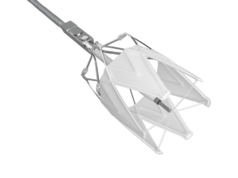Deepak L Bhatt, associate professor of Medicine at Harvard Medical School, chief of cardiology for the VA Boston Healthcare System and director of the Integrated Interventional Cardiovascular Program at Brigham and Women’s Hospital and the VA Boston Healthcare System, is principal investigator of the SYMPLICITY HTN-3 alongside George Bakris, professor of medicine and director of the Hypertension Center at the University of Chicago Medical Center. In July, the FDA conditionally approved the protocol for the trial, designed to investigate renal denervation with the Symplicity Catheter System (Medtronic) for the treatment of resistant hypertension. The system is commercially available in Europe and Australia. Bhatt told Cardiovascular News what the principles behind renal denervation are, the design of SYMPLICITY HTN-3, and what previous trials have shown so far.
How does renal denervation work?
Renal denervation addresses uncontrolled hypertension by reducing the drive of the sympathetic nervous system, which is central to blood pressure regulation. It is a minimally invasive procedure that modulates the output of the sympathetic nerves located outside the renal artery walls and may represent a breakthrough approach and first-of-its-kind device-based treatment for resistant hypertension, a condition that affects millions of people worldwide.
Specifically, renal denervation involves selectively disabling renal nerves. Denervation, which affects both the electrical signals going into the kidneys and those emanating from them, has the potential to impact the mechanical and hormonal activities of the kidneys themselves, as well as the electrical activation of the rest of the sympathetic nervous system (SN). Physiology suggests that blocking sympathetic nerves leading to the kidney reverses fluid and salt retention, and reduces inappropriate renin release (stopping the deleterious hormonal RAAS cascade before it starts).
By blocking sympathetic nerves emanating from the kidney, renal denervation may lower the level of activation of the whole sympathetic nervous system. In doing so, renal denervation may also decrease the electrical stimulation of other members of the sympathetic nervous system, such as the heart and blood vessels, having an additional antihypertensive effect.
SYMPLICITY HTN-3 will be the largest trial comparing renal denervation and medical therapy. What do you expect to achieve with this study?
SYMPLICITY HTN-3 is a single-blind, randomised, controlled trial designed to evaluate the safety and effectiveness of renal denervation with the Symplicity Catheter System in the treatment of patients with resistant hypertension. Across 60 US medical centres, the study will enrol approximately 500 patients who will be randomised to receive either renal denervation and treatment with antihypertensive medications or treatment with antihypertensive medications alone. The primary endpoints of the study are the change in blood pressure from baseline to six months following randomisation and incidence of major adverse events one month following randomisation.
Trial sites will recruit patients with uncontrolled hypertension, defined as receiving a stable regimen of optimum doses of three or more antihypertensive medications of different classes, of which one must be a diuretic, for at least two weeks prior to enrolment and still having an average office systolic blood pressure of ≥160mmHg.
What does the literature say on renal denervation for resistant hypertension?
Clinical research to date shows that renal denervation with the Symplicity Catheter System may provide a significant and sustained reduction in blood pressure levels for many patients with uncontrolled blood pressure, despite multiple antihypertensive medications. This research includes two clinical trials, SYMPLICITY HTN-1 and SYMPLICITY HTN-2.
SYMPLICITY HTN-1 was a series of pilot studies involving 153 patients at 19 centres in Australia, Europe, and the USA. In these studies, patients achieved a mean blood pressure reduction of 25/11mmHg at six months and the reduction was sustained through 24 months.
There was no evidence of vascular injury or stenosis at the treatment sites at six months, confirmed by imaging (CTA/MRA) and renal function was sustained (eGFR and creatinine).
These data were published in the Lancet (Krum et al; 373;1275–81).
SYMPLICITY HTN-2 was a randomised, controlled clinical trial of 106 patients in Europe, Australia, and New Zealand. Patients who were randomised to renal denervation achieved a mean blood pressure reduction of 32/12mmHg at six months, whereas the patients in the control group randomised to receive anthypertensive medications alone had blood pressures that did not vary from baseline (1/0mmHg). The investigators noted no serious procedure- or device-related events, and the overall occurrence of adverse events did not differ between groups. These data were published in the Lancet (Symplicity HTN-2 Investigators; 376: 1903).
Renal denervation is being looked at closely by many specialties. What is the role of interventional cardiologists in this technology?
Interventional cardiologists are performing renal denervation procedures with the Symplicity Catheter System for patients with resistant hypertension in countries where the system is approved (it is not approved in the USA). There is already a great deal of excitement about this approach among interventional cardiologists and there are several of them who will be participate in SYMPLICITY HTN-3.










